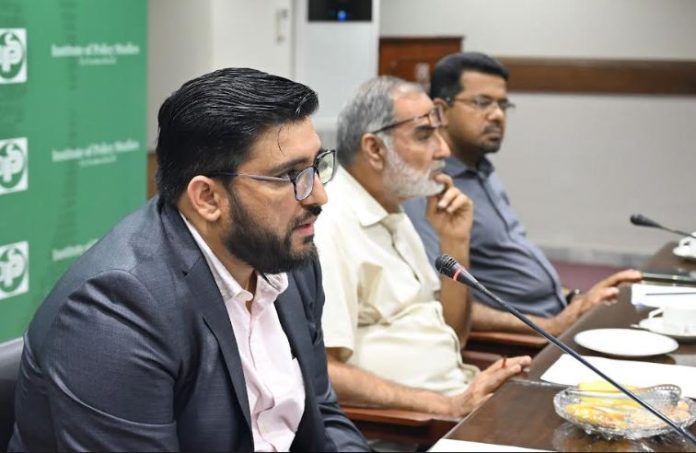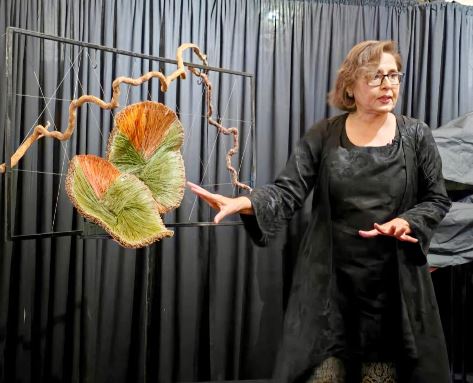DNA
ISLAMABAD, MAY 14: Anti-Muslim prejudice in the West is largely fueled by biased media portrayal and stereotypical representation, reinforcing negative perceptions. Additionally, political institutions exploit and amplify these prejudices for their own gain, further deepening discriminatory attitudes.
This was observed by Dr Abdul Samad, assistant director of the Muslim Philanthropy Initiative at Indiana University Lilly Family School of Philanthropy, who delivered a lecture on ‘US Muslims, Their Philanthropic Contributions, and Impact of Islamophobia’ at the Institute of Policy Studies (IPS). The session was joined by Khalid Rahman, chairman IPS, and moderated by Abdullah Adnan, research fellow IPS.
Despite comprising only 1.1% of the total population in the US, American Muslims make significant philanthropic contributions. He noted that Muslims in the US face socio-economic challenges but still donate approximately $4.3 billion annually, demonstrating their commitment to charitable causes, including for places of worship, overseas relief, civil rights, domestic relief, Covid-19, and other avenues.
He further underscored the diversity of the Muslim community and the challenges they face due to anti-Muslim sentiments and Islamophobia. Drawing from insights shared by scholar and author Khaled Beydoun, he elaborated on the various dimensions through which Islamophobia is manifested, spanning institutional, community, and private spheres.
At the institutional level, Dr Samad highlighted the impact of anti-Muslim legislation and policies, which perpetuate systemic discrimination against American Muslims. He also pointed out the biased media portrayals and anti-Muslim rhetoric from political figures as the major contributing factors to a hostile climate for Muslims in the country.
Furthermore, he shed light on the challenges faced by Muslims at the community level, including the alarming rise of anti-Muslim hate groups and resistance to refugee resettlement efforts. He emphasized that these community-level challenges are compounded by instances of harassment, hate crimes, bullying, and violence experienced by individuals on a personal or private level.
Such Islamophobic manifestations have largely been constructed by the racialization and stigmatization of Muslims through biased media representation, he stressed. However, the recent Gaza crisis has resulted in a growing movement within the US marked by wider sympathy towards Muslims. Moreover, there is an established system of checks and balances and remedial steps to address prejudice and discrimination at the state level.
Dr Samad also mentioned the significant influence wielded by faith-based organizations worldwide and the collaborative efforts of different religious communities in supporting one another and combating Islamophobia.
In this regard, he stressed the importance of building associations and collaborations between Muslim nonprofit entities. He elaborated on Indiana University’s Community Collaborative Initiative, comprising 25 Muslim organizations, which serves as a cooperative platform to foster philanthropic research, generate diverse philanthropic ideas, and bring together disparate entities to promote sustainability in their efforts to support communities against religious prejudices.
Expanding on the notion of philanthropy, Dr Samad highlighted that the concept of Muslim philanthropy is beyond mere monetary giving. It includes non-monetary actions, including giving one’s time, testimony, and even simple gestures like a smile.
In concluding remarks, Khalid Rahman emphasized the need to examine philanthropy beyond its Western-defined, monetary-centric perspective, acknowledging the rich history of Muslim philanthropy.
He further highlighted the evolving nature of philanthropic practices and noted the shifting dynamics influenced by global politics, particularly the ongoing Gaza crisis, as a pivotal event that has reshaped perspectives and priorities in philanthropy. He noted that philanthropic efforts for Gaza transcend religious boundaries and have overshadowed Islamophobia. With Muslims increasingly viewed as victims, there is a notable shift in public perspectives at the individual level, he said.












